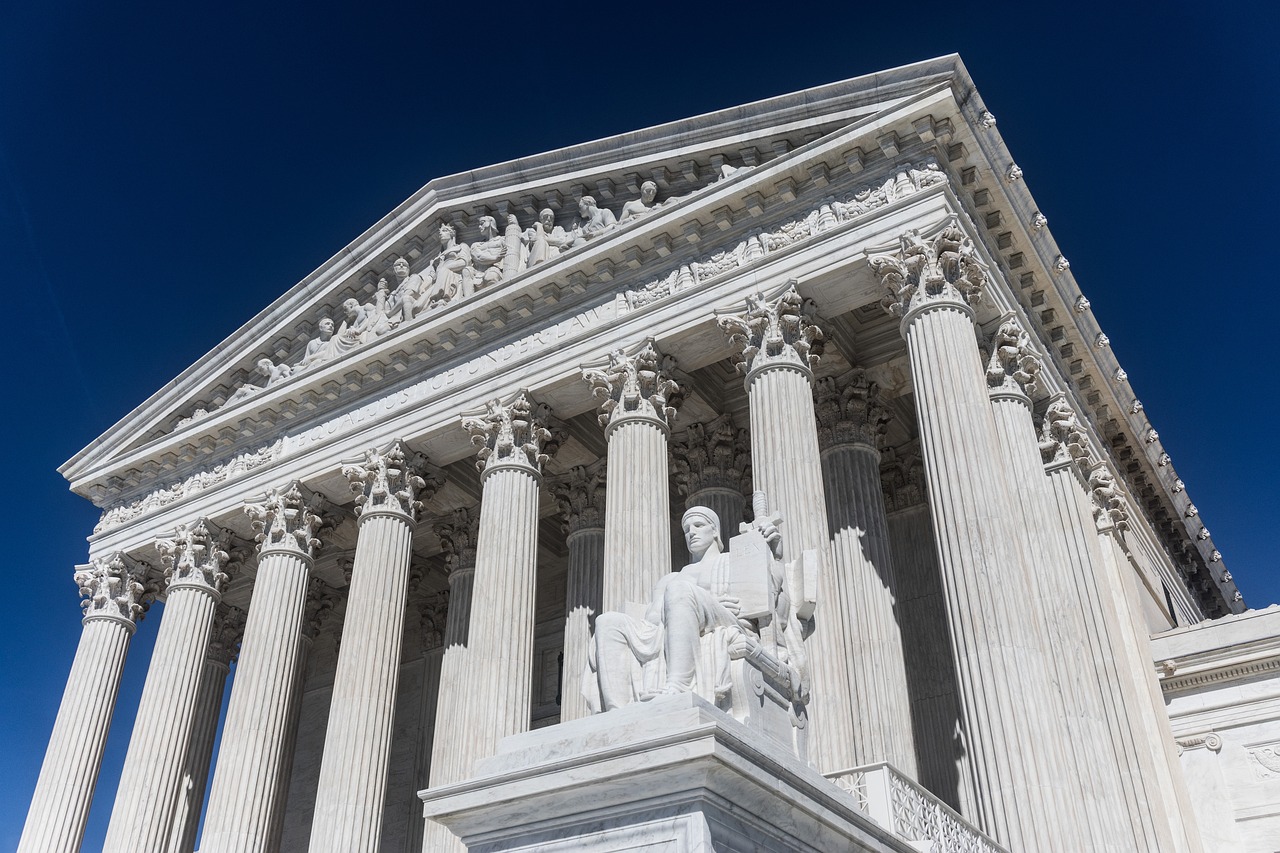The facts make it seem like a pretty boring case: A hedge fund manager found guilty of investor fraud by the Securities and Exchange Commission. But now the case is headed to the Supreme Court, with the plaintiff challenging the constitutionality of the administrative processes used by the federal government.
Legal scholars say depending on how the court decides SEC vs. Jarkesy, this case, due for oral argument this week, could be one of the most important of its kind, with profound implications.
Adam Pritchard is Frances and George Skestos professor of law at the University of Michigan and co-author of the book, “A History of Securities Law in the Supreme Court.” He says the plaintiff’s arguments may receive a more sympathetic hearing than they would have ten years ago, when the court included fewer conservative members. Listen to the interview above or read the transcript below.
This transcript has been edited lightly for clarity:
Texas Standard: The plaintiff here is challenging not just his conviction, but the very way that the SEC decides who’s guilty and who isn’t. Is that right?
Adam Pritchard: That is correct. The claims against him are very run-of- the-mill, but the constitutional arguments are quite significant here with a lot of implications for how administrative proceedings work.
We should probably be clear about what we’re talking about. I have heard administrative law described as a kind of a fourth branch of government. I guess technically speaking, it would fall under the executive branch, am I correct?
It falls under the executive branch. But there’s this set of agencies called independent agencies.
Like the SEC, right?
The SEC is one of the most prominent of them that are not directly accountable to the president.
Which means that the president can’t just fire anyone at will because the person in that job doesn’t make a decision in alignment with however they might view politics at the time.
That’s exactly right.
So why is this considered by so many to be such a big deal? What is the outcome that many seem to be so concerned about?
So the holding from the Court of Appeals for the Fifth Circuit would severely constrain the ability of the SEC to adjudicate proceedings in front of an administrative law judge, which is essentially its own home court, and would require them to bring a significant number of cases in federal court before a federal district judge. And that would complicate the enforcement policies of the SEC.
If I understand what Jarkesy is saying here, he’s saying that “I shouldn’t be convicted by an agency. I should have full due process of the law, should be a trial by jury” – that these agencies shouldn’t have their own little court systems, I suppose you could say.
So I think the argument is a little narrower than that.
Congress has set up a regime where the SEC gets to choose whether it will bring the case in an administrative proceeding or it will bring the case in federal court. If the SEC brings the case in a federal court, then no one disagrees that the defendant would have a right to a jury trial. If they bring the case before an administrative proceeding, the SEC and the solicitor general’s office argue, shouldn’t be entitled to a jury trial.
There are numerous agencies that use administrative tribunals, and that’s the biggest challenge to Mr. Jarkesy’s argument, which is you have things like the Social Security Administration and various tax courts where things can be contested with tens of thousands of cases. And if the holding were that all those cases had to be brought in federal court, it would be a deluge of cases that federal district judges would have to decide and it would overwhelm the federal judicial system.
I think the argument that a lot of people are hearing in the news headlines about this case is that this could, in a way, undo the administrative state as we have known it since the New Deal, I guess, right?
So that is the claim raised by people who are concerned about this decision. I think that’s a little hyperbolic.
I think there is very little chance that the Supreme Court is going to say that when the federal government is handing out certain government benefits, that it has to decide entitlement to those benefits in federal court. That seems like a pretty obvious nonstarter to me. The cases that are harder under the court’s precedents and under the Constitution are cases where the government is enforcing a penalty against an individual for some sort of misconduct.
Depriving them of some kind of property interest or something like that, is that what you’re saying?
Yes. So he was fined in this case and subject to certain restrictions on his behavior. But imposing a fine on someone, it fits within what most people would think that you might want a jury of your peers to decide whether you did the wrong that is alleged.
Any sense as to how the court is leaning here? I mean, there’s been a lot of attention on the political persuasions of the justices. Right now, a conservative court is the way it’s generally seen.
So it is a conservative court. I would have said ten years ago that Mr. Jarkesy’s arguments were nonstarters. But there have been some decisions that give a little bit of hope for people who are attempting to challenge the administrative state, or at least its more expansive manifestations. And at least some of the justices will, I predict, be interested in some of Mr. Jarkesy’s arguments.
I think some of them are not likely to fly. But he will get a sympathetic audience from at least some of the justices. And the question will be counting to five. And until we have oral argument, we don’t have a lot of insight into any leanings from the individual justices.














